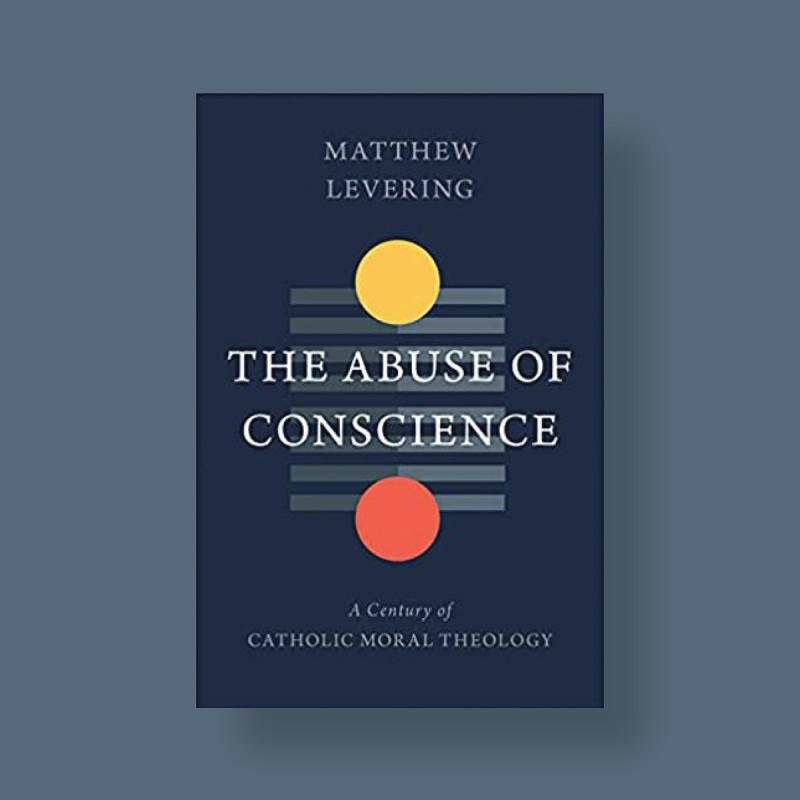***
Eerdmans | 2021 | 368 pages (hardcover) | $45.00
As the title indicates, this book examines Roman Catholic moral theology in the twentieth century and beyond, with a special focus on conscience. (“Moral theology” is roughly equivalent to “ethics,” although the former sometimes indicates a broader range of subjects.) Readers of Modern Reformation, surely most of whom aren’t Roman Catholic, may wonder why they should take notice of such a book, or even a review of it. I suggest two basic reasons. First, this book provides great insight into the moral crisis of contemporary Roman Catholicism, an issue of broad public interest. Just in the few weeks prior to my writing this, the mainstream press has addressed the intrigue of Pope Francis meeting with President Biden, an unapologetic supporter of abortion rights and the LBGTQ+ agenda, assuring him that he’s a “good Catholic.” The press has also publicized moves by the German bishops to defy church teaching by blessing homosexual unions, among other things. Second, this book serves as a warning to confessional Protestants about how traditional Christian moral ideas can get derailed by the spirit of the times and it should stimulate our own thinking about how to maintain and enrich our own moral-theological traditions.
Matthew Levering, a prolific Roman Catholic theologian, offers primarily a work of historical interpretation, that is, an explanation of the course of Roman Catholic moral theology in the twentieth century. But by his own admission he writes not as a neutral observer but as a critic of the predominant lines of this history. To accomplish his goals, Levering explains the views of twenty-six theologians. Most of the book is simply a description of what they wrote. It must be said that reading these descriptions—one after another—can be a bit tedious at times. Levering does pause here and there to offer big-picture perspectives, and these interludes are consistently sharp and incisive. But his readers do have to work through some slow-moving material. Nevertheless, it is worth pressing on, for the latter parts of the book offer payoffs for readers who persevere.
The first chapter describes the work of several scholars on what Scripture teaches about conscience, thereby providing a foundation and benchmark for the remaining chapters. According to Levering, these scholars show that conscience is a biblical theme that illuminates aspects of the Christian moral life but is far from being central to New Testament ethics. Faith, hope, love, the cross of Christ, and the grace of the Spirit are far more prominent themes.
The second chapter turns to Roman Catholic moral theology per se. It considers some of the many moral manuals produced prior to the Second Vatican Council of the 1960s. Post-Vatican II theologians have ruthlessly criticized these manuals for their narrow legalism. Levering says that the manuals are better than these critiques suggest, for they provide many good insights and see much more to the Christian life than just law and obligation. Nevertheless, Levering agrees that they were deficient. He surveys several of them and describes how they perceived a tension between liberty and law. That is, they sought to determine what God’s law demands and what it leaves for Christians’ liberty. This is the context in which the manuals ascribed a central role to conscience. For them, conscience is the rational human act that applies God’s law to particular moral circumstances. Despite the manuals’ many insights, Levering concludes that their focus on conscience navigating the tension between God’s law and human liberty was too narrow and thus distorted their understanding of the Christian moral life.
In chapter 3, Levering discusses the work of several twentieth-century Thomists. By “Thomists,” he means theologians who seek to follow and develop the thought of Thomas Aquinas. According to Levering, these Thomists acknowledged an important role for conscience but didn’t make it central to the moral life. Instead, they integrated the place of conscience into Christian theology and the Christian life as a whole. In doing so, they argued that conscience only functions properly alongside the Christians virtues and they carefully distinguished the roles of conscience and prudence. Levering suggests that these theologians primed Roman Catholic moral theology to advance in helpful ways beyond the manuals.
But this promise of advance went unfulfilled. Chapter four argues that mainstream Roman Catholic moral theology after Vatican II, although very critical of the manuals, made conscience even more central. But these moral theologians no longer viewed conscience as the application of God’s law to human moral decisions. Instead, they understood conscience as the means by which all people exercise their freedom, make their own moral decisions, and express authenticity, based upon their subjective experience and discernment of what God wills them to do. In case of conflict, such decisions of conscience overrule the teaching of the church and allegedly universal ethical rules.
Levering leaves no doubt that he views such developments as tragically misguided. These post-Vatican II theologians detached conscience from God’s law, rejected the stability and purposefulness of human nature, and were overly optimistic about the results of placing conscience in charge of the moral life of fallen human beings. Levering thus calls for the repair of Roman Catholic moral theology through recovering biblical and Thomistic insights and reintegrating conscience into the broader, virtuous Christian life.
I judge that Levering has succeeded in both his primary and secondary purposes. With respect to the primary, his descriptions of the twenty-six theologians are thoroughly documented and clearly explained. The story of twentieth-century Roman Catholic moral theology, as he tells it, fits together coherently. As one who completed a PhD in ethics at a Roman Catholic university and has observed Roman Catholic moral theology rather closely for over two decades, I can say that Levering’s account of where things stand and how they got there rings true. Levering is also largely successful in fulfilling his secondary purpose: to critique where mainstream Roman Catholic moral theology has gone and to point in a better direction. On the one hand, mainstream Roman Catholic moral theology is indeed a mess. On many issues, it elevates subjective human feelings over traditional Christian morality, rejects aspects of biblical teaching as hopelessly outdated and oppressive, and glorifies anti-traditional judgments of conscience as marks of moral and spiritual maturity. Levering’s call for a chastened view of conscience, in which conscience stands under the authority of God’s law and serves the whole range of Christian virtues, is also generally persuasive.
Of course, I and most readers of this review are outsiders to this intra-Roman Catholic dispute, and confessional Protestants will inevitably differ in some respects from Levering’s ideal vision for moral theology. Nevertheless, confessional Protestants do well to pay attention. For a long time, it seemed implausible that Roman Catholicism, with its penitential system and overbearing hierarchy, could fall into moral revisionism. But that has happened among large swaths of Rome’s theologians, clerics, and laity, for whom contemporary cultural trends hold greater sway than traditional Christian morality. That in itself serves as a warning. But it’s also worth reflecting on the fact that doubling down on law and obligation as the center of Christian ethics wasn’t the safeguard that the Roman Catholic manuals thought it was. Many works on “ethics” in the conservative Protestant world in recent decades focus on the requirements of God’s law and how Christians should resolve controversial culture-war issues. Understanding God’s law is certainly crucial for Christian ethics and working through culture-war issues also has its place, but a rich conception of the Christian moral life requires considerably more than this. For example, issues of virtue, character, and wisdom are pervasive in the Scriptures, as a casual read through Proverbs, the Sermon on the Mount, or Paul’s moral exhortations can easily illustrate. In recent years, some scholars have been rediscovering the important place of virtue in the moral writings of classical Protestant theologians. In my judgment, the reintegration of virtue with divine law should be one of the great goals of confessional Protestant ethics in the years to come. Classical Protestantism also has a rich legacy of works on Christian piety and spirituality. These have never been completely forgotten, but they often seem to have little place in works of “ethics” devoted to a handful of controversial cultural issues. The reintegration of law and a deep, Christ-centered spirituality is another great task for confessional Protestant moral theologians to pursue. Levering writes primarily for fellow Roman Catholics, but his concern has analogous application for confessional Protestants: guarding against moral liberalism through emphasis on God’s objective law is very important, but a biblical, satisfying, and historically-rooted ethics also needs to be grounded in a full-orbed theology of salvation, church, human nature, and eschatological destiny.
David VanDrunen (PhD, Loyola University Chicago) is Robert B. Strimple Professor of Systematic Theology and Christian Ethics at Westminster Seminary California in Escondido.








